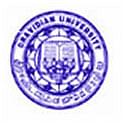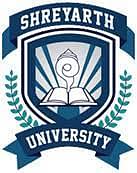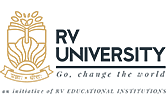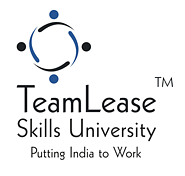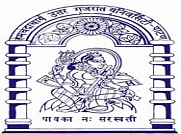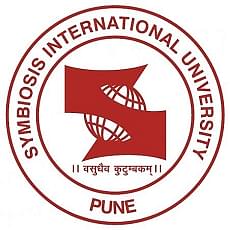Tula Institute: DMLT
Introduction, Admission, Eligibility, Duration, Syllabus
Introduction about DMLT
DMLT, or Diploma in Medical Laboratory Technology, is a comprehensive program that trains individuals to become as clinical biochemistry, microbiology, hematology, and pathology. The curriculum combines theoretical knowledge with practical laboratory skills, covering sample collection, analysis, and result interpretation. Graduates of DMLT play a crucial role in healthcare settings, skilled laboratory technicians in the field of healthcare. This diploma course focuses on laboratory procedures, equipment operation, and diagnostic techniques essential for supporting medical professionals in diagnosing and treating diseases. DMLT students gain proficiency in areas such contributing to accurate diagnosis and patient care. The program prepares individuals for diverse roles in clinical laboratories, research institutions, and healthcare facilities.
How can I apply for admission to
DMLT?
1.
The process for applying to Top
Institute in Dehradun for DMLT, follow these general steps:
- Research
Institutions:
- Identify
educational institutions that offer DMLT programs. This could include
universities, colleges, or vocational training institutes.
- Check
Eligibility:
- Review
the eligibility criteria set by the institution. Common requirements may
include a high school diploma or its equivalent with a background in
science subjects.
- Application
Form:
- Obtain
the application form from the institution's official website or admission
office. Some institutions may provide online application options.
- Fill out the
Application:
- Complete
the application form with accurate and relevant information. Pay
attention to any supporting documents or application fees that may be
required.
- Submit
Documents:
- Prepare
and submit the necessary documents, such as academic transcripts,
certificates, proof of identity, and passport-sized photographs. Ensure
that you meet any specific document requirements mentioned by the
institution.
- Entrance
Exams (if applicable):
- Some
institutions may conduct entrance exams as part of the admission process.
Be aware of any required exams and prepare accordingly.
- Interview
(if applicable):
- Prepare
for any interviews or counseling sessions that the institution may
conduct as part of the selection process.
- Application
Fee:
- Pay
the application fee, if applicable, as per the institution's
instructions.
- Application
Submission:
- Submit
the completed application form and supporting documents by the specified
deadline. This can often be done online or by physically submitting the
documents to the institution.
- Check
Admission Status:
- Monitor
the institution's communication channels to check for updates on your
admission status. This may include emails, official website
notifications, or physical admission letters.
- Secure
Admission:
- If
accepted, follow the institution's guidelines to secure your admission.
This may involve paying fees, attending orientation sessions, and
completing any additional formalities.
What is the eligibility for DMLT?
The eligibility criteria
in The Best College in Dehradun (DMLT)
programs may vary slightly from TULA Institute. However, here are some common
eligibility requirements:
1.
Educational Qualifications:
·
Applicants should typically have completed their higher
secondary education (10+2) in the science stream. The science subjects may
include Biology, Chemistry, and Physics.
2.
Minimum Percentage:
·
Some institutions may specify a minimum percentage or grade
requirement in the qualifying examination (10+2).
3.
Age Limit:
·
There is usually no specific age limit, but some institutions
may have age-related eligibility criteria. Check the age requirements of the
institution you are interested in.
4.
Entrance Exams (if applicable):
·
Certain institutions may conduct entrance exams as part of the
admission process. Qualifying in these exams may be a requirement for
admission.
5.
Medical Fitness:
·
Some institutions may require candidates to meet specific
medical fitness standards, as working in a laboratory may involve handling
biological samples and chemicals.
6.
Nationality:
· In most cases, DMLT
programs are open to both Indian and international students. However, specific
institutions may have nationality-related criteria.
How long does it take to complete
DMLT?
A Diploma in Medical
Laboratory Technology (DMLT) typically takes two years to complete. This
program provides comprehensive training in laboratory procedures and diagnostic
techniques essential for supporting medical professionals in disease diagnosis
and patient care. The curriculum covers various aspects of clinical
biochemistry, microbiology, hematology, and pathology. DMLT students gain
theoretical knowledge and practical skills through hands-on laboratory
training, equipping them for roles as skilled laboratory technicians. The
two-year duration includes both classroom instruction and practical training,
preparing graduates for employment in clinical laboratories, research
institutions, and healthcare facilities upon completion of the program.
Internship opportunities after
completing DMLT?
After completing DMLT at The
Best Institute of India there are several internship
opportunities available in various sectors of the science. Here are some
potential areas where you can find internship opportunities:
1.
Clinical Laboratories:
·
Many DMLT graduates undertake internships in clinical
laboratories associated with hospitals, diagnostic centers, or healthcare
institutions. This provides hands-on experience in performing various
diagnostic tests and procedures.
2.
Research Institutions:
·
Interning in research institutions or laboratories allows
individuals to contribute to ongoing research projects, gaining exposure to
advanced laboratory techniques and methodologies.
3.
Public Health Organizations:
·
Internships with public health organizations may involve working
on community health projects, conducting screenings, and contributing to
disease prevention initiatives.
4.
Pharmaceutical Companies:
·
Some DMLT graduates choose internships in pharmaceutical
companies, where they may be involved in quality control, research, or product
development related to diagnostic tools.
5.
Blood Banks:
·
Interning in blood banks provides practical experience in blood
collection, testing, and processing, contributing to crucial healthcare
services.
6.
Government Health Departments:
·
Interning with government health departments can offer exposure
to public health programs, epidemiological studies, and disease control
initiatives.
7.
Specialized Laboratories:
·
Depending on personal interests and career goals, DMLT graduates
may seek internships in specialized laboratories, such as genetics labs,
immunology labs, or molecular biology labs.
Syllabus of DMLT?
The syllabus of a Diploma
in Medical Laboratory Technology (DMLT) typically covers a range of subjects
crucial for training laboratory technicians. It includes theoretical and
practical components such as clinical biochemistry, microbiology, hematology,
pathology, immunology, and blood banking. Students learn about laboratory
equipment operation, diagnostic procedures, sample collection, and result
interpretation. The curriculum often incorporates hands-on training,
emphasizing laboratory techniques, quality control, and healthcare ethics.
Additionally, DMLT programs may include coursework in medical terminology,
anatomy, and physiology. The syllabus is designed to equip graduates with the
skills needed for accurate diagnostic testing and laboratory management in
healthcare settings.
Conclusion:
If you want
to take admission DMLT and for more detail kindly contact with us :
www.universityfindo.com





